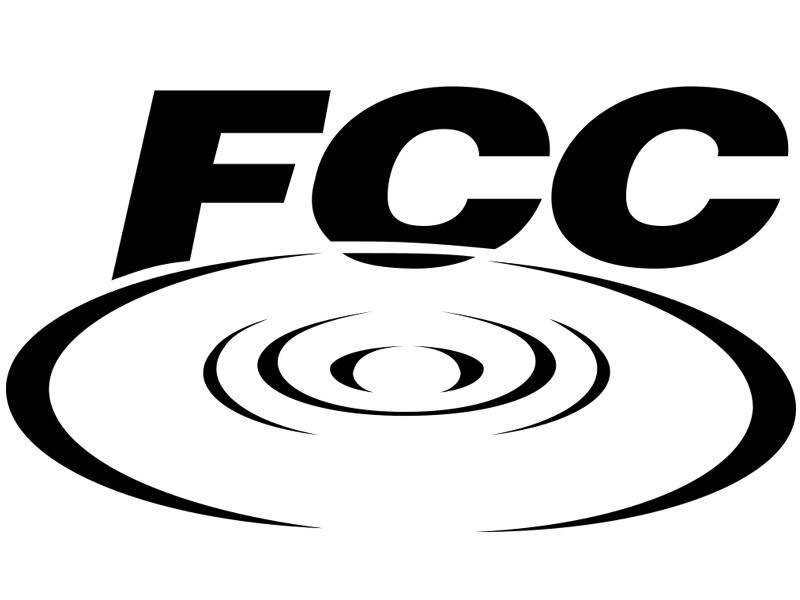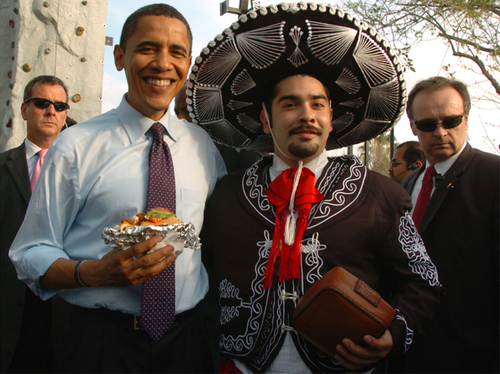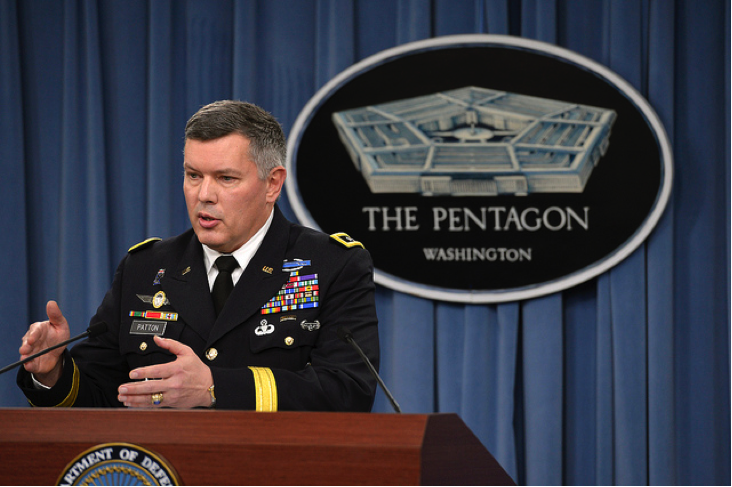In the 1960s, the Cold War was in full swing. The Union of Soviet Socialist Republics (USSR) had launched the first artificial satellite into space, giving their country the advantage in space over its major rival, the United States. For the first time, the threat of weapons, known as intercontinental ballistic missiles, hung over the world. In response to the growing military capability of the USSR, the United States created an agency known as the Defense Advanced Research Projects Agency (DARPA) and tasked it with creating a network to provide for the continued command and control of U.S. defense systems. The first iteration of this network, called ARPANET, was the precursor to the modern Internet as it is known today.
The modern Internet is a network of computers, handheld devices, and various networking pieces (routers, switches, etc.) that had been largely unregulated since the development of ARPANET in the 1960s and 1970s. However, recent years have seen the idea of a free and open Internet come under fire by telecommunications companies, primarily those who carry the moniker of Internet Service Providers (ISPs). The principle of network neutrality or net neutrality states that there should be no discrimination concerning what Internet traffic goes where on the network and from what device. Currently, the system allows, for example, traffic from AT&T, Comcast, and Verizon to access websites that may be hosted on a different network. The system also allows programs or services provided by one ISP or group (i.e. Vonage, a Voice-over-Internet-Protocol, or VOIP, provider) to be used on another network’s systems (i.e. Verizon, which offers a similar system for business owners). ISPs, however, are trying to change that.
ISPs, which include companies AT&T, Verizon, Time Warner, and Comcast, are currently lobbying the government to allow them to restrict or favor traffic depending on whether the content provider works in tandem with them. There have been incidents, both within the United States and elsewhere, where ISPs have slowed down traffic (through a process called ‘throttling’) or outright blocked data transmissions over their networks. In 2005, Madison River Communications, an ISP based in the southern U.S., was ordered by the Federal Communications Commission (FCC) to stop blocking competing VOIP providers on their network. Another ISP, Comcast Corporation, was found to be guilty of sending false data along its network, hampering legitimate services such as video-streaming sites and online games using the Bit Torrent protocol. These incidents have caused a backlash amongst subscribers to their services, and have drawn the agency’s attention.
The FCC is a governmental body that regulates and oversees the telecommunications industry, which includes phone, cable, and Internet service. The FCC has taken a very strong stance in favor of network neutrality, in keeping with both the policy of the Barack Obama administration and the body’s history with both cable and telephone companies. In Wired Magazine, FCC Chairman Julius Genachowski, says, “The Internet’s creators didn’t want the network architecture – or any single entity – to pick winners and losers… The principles that will protect the open Internet are an essential step to maximize investment and innovation in the network and on the edge of it — by establishing rules of the road that incentivize competition, empower entrepreneurs, and grow the economic pie to the benefit of all.” The FCC has been at the forefront of the fight for net neutrality, being involved in the two cases mentioned prior and also working with the public and the press.
In addition to their legal endeavors, the FCC has attempted to lay down guidelines for maintaining network neutrality. These guidelines have drawn support from pro-open Internet groups, including Electronic Frontier Foundation and Public Knowledge, a consumer group. The guidelines are meant to serve as a framework that continues the status quo of open access, that is, the ability of all Internet-capable machines to access the service without penalty based on what network is behind the connection. Currently, there are four tenets accepted by the Commission regarding the Internet as it applies to consumers: The entitlement to access lawful content, entitlement to run applications and services of their choice, entitlement to connect their choice of devices, and entitlement to competition amongst providers.
Unfortunately for the FCC, these principles are not fixed rules, and have been challenged in the public eye by telecommunications companies, most notably Comcast. Comcast’s position is that the FCC has no authority to force telecommunications companies to adhere to the aforementioned guidelines. Comcast’s arguments can be summed up in three statements, as put forth by the tech news organization Ars Technica: First, the Congress has not given the FCC the ability to act on the matter of net neutrality; second, that the FCC’s guidelines, having been presented in the form of a policy statement and not that of a binding document, do not carry any authoritative weight; and third, the regulation of such activities may breach Congress’s Administrative Procedures Act of 1946. With this in mind, Comcast maintains that the FCC should apply the same rules to the Internet as it does to cable and telephone service. As of press time, the principles have not been fully challenged in any legal sense, but the groundwork is there, should a telecom decide to proceed.
The fight over network neutrality has been brought up several times in the US Congress, as the focus of bills brought forth by members of both the House and Senate. Senator John McCain (R-Ariz.) introduced the Internet Freedom Act of 2009, which sought to limit the FCC’s ability to regulate the Internet and services attached to the Internet. A similar bill brought forth by Representative Marsha Blackburn (R-Tenn.), the “Real Stimulus Act of 2009,” used the exact same language as that in Senator McCain’s proposal. Neither act has had further debate since being introduced to the Houses. On the other side of the argument, Representatives Edward Markey (D-Mass.) and Anna Eshoo (D-Calif.) have introduced the Internet Freedom Preservation Act of 2009. This bill sought to protect freedom of the Internet under the Communications Act of 1934 by amending that Act to include Internet services. This bill, too, has stalled in committee.
The fight over network neutrality is a fierce one, and could be pivotal to the informational future of the United States. Both sides are in hot pursuit of the public’s support, and are moving to guard their interests. Eventually, one side will prevail, and one can only hope that the result will benefit both sides, and not just that of the providers. Whichever side comes out on top will influence the future of the Internet as we know it.
______________________
Anderson, Nate. Hammer drops at last: FCC opposes P2P throttling. July 25, 2008. http://arstechnica.com/old/content/2008/07/hammer-drops-at-last-fcc-opposes-comcast-p2p-throttling.ars (accessed November 11, 2009).
—. House, Senate get separate bills to kill net neutrality. October 30, 2009. http://arstechnica.com/tech-policy/news/2009/10/house-senate-get-separate-bills-to-kill-net-neutrality.ars (accessed November 14, 2009).
Federal Communications Commission. “FCC Chairman Michael K. Powell Commends Swift Action to Protect Internet Voice Services.” March 3, 2005. http://hraunfoss.fcc.gov/edocs_public/attachmatch/DOC-257175A1.pdf (accessed November 9, 2009).
—. “Policy Statement.” Federal Communications Commission. August 5, 2005. http://fjallfoss.fcc.gov/edocs_public/attachmatch/FCC-05-151A1.pdf (accessed November 11, 2009).
Internet Society. A Brief History of the Internet. December 10, 2003. http://www.isoc.org/internet/history/brief.shtml (accessed November 9, 2009).
Karr, Tim. Internet Freedom in the House. July 31, 2009. http://www.savetheinternet.com/blog/09/07/31/internet-freedom-house (accessed November 14, 2009).
Lasar, Matthew. Comcast: FCC lacks any authority to act on P2P blocking. March 18, 2008. http://arstechnica.com/old/content/2008/03/comcast-fcc-lacks-any-authority-to-act-on-p2p-blocking.ars (accessed November 11, 2009).
SaveTheInternet.com. Frequently Asked Questions. http://www.savetheinternet.com/faq (accessed November 11, 2009).
Singel, Ryan. FCC Backs Net Neutrality–And Then Some. September 21, 2009. http://www.wired.com/epicenter/2009/09/net-neutrality-announcement/ (accessed November 11, 2009).



